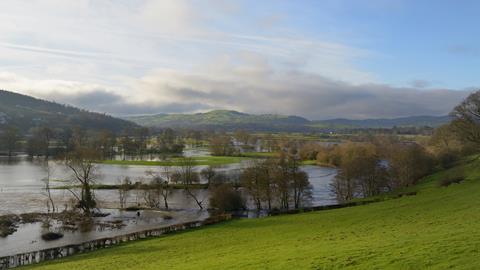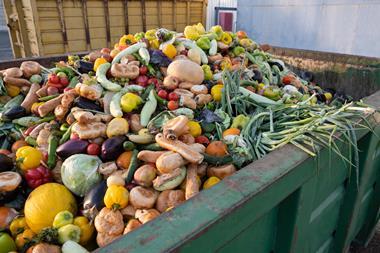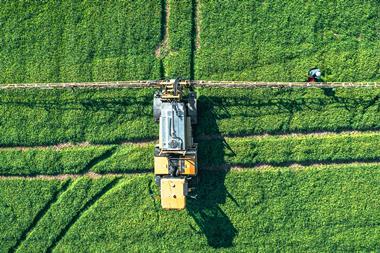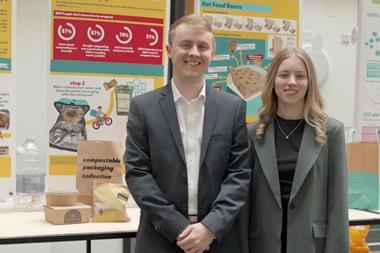With climate change a growing threat to the food and drink industry, the Welsh Government is setting out a strategy to support businesses and future-proof them against the issue.
Climate change is one of the biggest, fastest and most enduring threats humanity faces. In a sector that is particularly reliant on natural resources, weather patterns and ecological systems, the food and drink industry is already experiencing its impacts. This includes dealing with wetter winters, warmer summers and more unpredictable weather patterns, which will continue to become more obvious over the coming years and decades.
Up until now, most of the focus has been on efforts to reduce carbon emissions. This is essential to slow the warming of our planet, which, if unchecked, leads to rising global temperatures that disrupt climates, melt polar ice, and intensify heatwaves, droughts, and storms
At the same time, however, it is essential for the food and drink industry to prepare for the impacts of climate change, adapt its practices to become more resilient to its wide-ranging effects, and capitalise on any opportunities that arise through environmental changes.
In October 2024 the Welsh government published its Climate Adaptation Strategy for Wales, which it sets out its current and future actions in responding to a changing climate.
When it comes to food security, the Welsh Government’s climate adaptation strategy seeks to minimise disruption to food and feed supply chains. This will be done through considering climate risks within UK trade agreements, along with reducing supply chain risks through capacity building, diversification, and other contingency planning.

Support for Welsh food and drink businesses
Welsh Government’s Food & Drink Wales has been working on a suite of resources to help give the industry a head start. With food security linked to a large number of sectors, support includes working with businesses, retailers and even future generations, through educating young people with activity packs shared with hundreds of schools.
Welsh Government has also been working on a series of training courses for food and drink businesses, to help them make the necessary adaptations to be more climate resilient. By encouraging firms to deal with the challenges head-on, while also capitalising on the opportunities, it is hoped that the industry and supply chains will be more robust for the future.
Following an initial pilot project with companies spanning the sector, a series of courses and handbooks are now being developed and made available for businesses in Wales. Topics include looking at finances and price increases, the impact on staff, risk assessments, vulnerabilities, flood preparation templates, affordable insurance and more.
While not everything can be predicted, it is hoped the training resources can help give businesses the management tools and confidence to respond to different scenarios.
In addition, a rapid online assessment has been developed to help businesses identify their preparedness to the impact of climate change, focusing on actions in eight categories, from operations and supply chain, to product, people, customers, governance and finance. Food and drink businesses can visit the Food & Drink Wales sustainability portal and complete the online assessment. This will provide them with an initial steer on their preparedness, with the option to follow up with Welsh Government for more tailored support.
Working with independent retailers
In its aim of fostering a Welsh retail sector fully equipped to meet climate challenges, Food & Drink Wales have also created a resilience toolkit for independent retailers.
While many larger retailers and suppliers have already implemented climate resilience strategies, it is crucial this extends across the entire sector. The toolkit is specifically designed to support independent retailers, helping them strengthen their operations and adapt to an evolving climate landscape.
The toolkit includes supplying introductory frameworks for creating climate risk assessments, putting together short and long-term plans, in addition to tools allowing them to monitor and review progress. It also deals with issues such as financial shocks, price volatility, legislation, employee training and more.
Industry collaboration
This collaboration across multiple sectors is symptomatic of the approach that Wales is taking in dealing with the impact of climate change. Huw Irranca-Davies MS, Deputy First Minister and Cabinet Secretary for Climate Change and Rural Affairs, says: “The Welsh Government has an important role to play in adapting to climate change, but we cannot do this alone. The Climate Adaptation Strategy for Wales helps us identify what we need to do in the future to respond to a changing climate.
“We’re fully aware of the vulnerabilities – and opportunities – that exist for the food and drink industry, and it’s reassuring to see organisations working together to find solutions.
“When we unveiled our vision for the industry a few years ago, we had a stated aim of creating one of the most sustainable food and drink supply chains in the world. This certainly remains the case, but in addition, we also understand the vital importance of having a robust and resilient supply chain that can adapt to the inevitable climate challenges of the future.”
Case study: Castell Howell
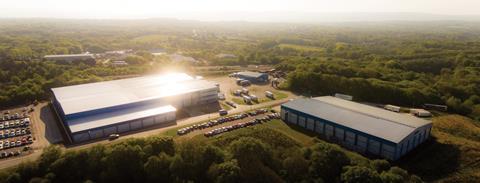
One Welsh company that is already taking food security and supply chain resilience seriously is Castell Howell. As a food producer and wholesaler managing the import of 14,000 product lines – approximately 20% of which are sourced internationally – they are fully aware of the potential impact of global events, as well as more localised disruptions.
A cornerstone of their strategy has been a strong focus on local procurement, and mitigating risks associated with international supply chains. For example, dealing with local farmers ensures more predictable transport logistics and fewer disruptions.
Ffion Moseley of Castell Howell explains: “Extreme weather conditions affect the availability of key produce items. For example, recent shortages in parsnips were directly linked to adverse weather conditions.
“We have implemented measures to ensure supply continuity. Diversifying our supplier base, both locally and internationally, helps us spread the risk and maintain a steady flow of products. This approach allows us to offer alternatives to our customers when specific items are in short supply.
“Food security and supply chain resilience needs to be at the forefront of what we do as an industry, and collaborative efforts between producers, suppliers, and policymakers will be essential in building more resilient food systems.”
Climate Week addresses adaptation
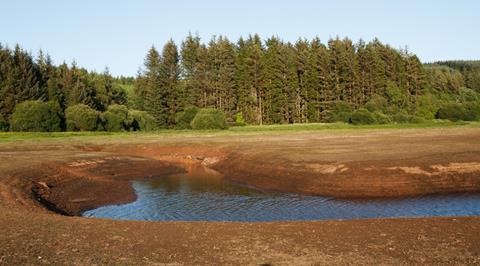
Wales Climate Week 2024 (11 – 15 November) will feature two virtual sessions dedicated to climate adaptation in the food and drink industry. In the first session – Adapting to Climate Change: Safeguarding Food Security for the Future – a panel of experts from academia and industry leads will explore how climate change impacts food security and will consider strategies to ensure a sustainable food supply.
The second session – The Business Imperative Behind Climate Adaptation – will unpick the complexities of understanding the impact of climate change on businesses by highlighting the climate critical control points within any business.
Also, as part of Wales Climate Week, 165 schools will participate in climate discussions using activity packs created to help teachers engage students in exploring the connections between our actions, the climate, and the food we eat.
You can find out more about Wales Climate Week sessions, including post-event recordings, through visiting: climateweek.gov.wales.
Visit the dedicated sustainability hub to find out more about how Food & Drink Wales can support businesses in the industry adapt to climate change: food-drink.wales/business








